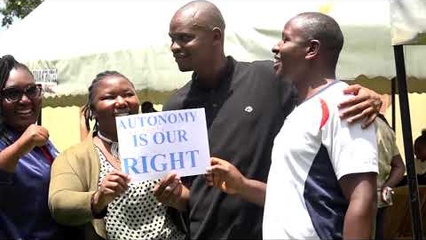Erin Gruwell’s story is a powerful testament to what can happen when a teacher refuses to give up on her students, even when the rest of the world already has. As a young English teacher at Woodrow Wilson High School in Long Beach, California, she was assigned a class of students considered the worst in the school. They were labeled “unteachable,” troublemakers, and failures. Many were from minority backgrounds, affected by poverty, gang violence, racism, broken families, and trauma. They walked into the classroom with anger, distrust, and a deep sense of hopelessness.
Gruwell, fresh from university and full of optimism, encountered resistance from all corners. Her students were not interested in learning, and even her fellow teachers discouraged her efforts. But she refused to accept that these students were beyond redemption. She decided to reach them on a human level before attempting to teach any curriculum. She introduced them to literature that reflected their own struggles – books like The Diary of Anne Frank and Zlata’s Diary—stories of young people surviving hate, war, and oppression. Suddenly, her students could see themselves in those pages. They began to understand that they were not alone in their pain, and that their voices and experiences mattered.
To encourage self-expression, Gruwell gave her students journals and asked them to write about their lives—uncensored, ungraded, and without fear of punishment. The entries were raw, heartbreaking, and deeply honest. Students wrote about shootings, abuse, homelessness, and loss. But through writing, they found healing. They found their voice. Slowly, the class transformed into a community. Students who once saw each other as enemies became allies. Those who hated school began arriving early and staying late. Their academic performance improved. More importantly, their self-worth blossomed.
ALSO READ:
Stamp your authority now and nab looters of MoE Ksh.54Billion, MP tells gov’t
The students’ journal entries were later compiled into a book titled The Freedom Writers Diary. The name “Freedom Writers” was inspired by the “Freedom Riders” of the American civil rights movement – young people who risked everything to fight for justice and equality. Gruwell’s students saw themselves continuing that struggle in their own way: by using education to break the chains of ignorance and circumstance.
What makes Erin Gruwell’s story so compelling is not that she had access to exceptional resources or ideal conditions. In fact, she faced numerous obstacles—budget cuts, administrative resistance, and personal sacrifice. She often spent her own money on books and supplies. But she taught her students with love, with relentless hope, and with a belief in their ability to rise above their environment.
Her story has deep relevance for Kenyan teachers. Across the country, especially in marginalized communities, many students come to school burdened by poverty, trauma, or neglect. Some are dismissed as failures before they’re even given a chance. Erin Gruwell’s experience reminds us that no learner is too far gone. What they need is a teacher who sees their humanity first – a teacher willing to listen, to care, and to create a safe space where learning becomes a path to liberation.
ALSO READ:
Varsity degrees mustn’t become symbols of frustrations but rather tools of empowerment
Kenyan educators can also draw inspiration from Gruwell’s use of personal storytelling as a teaching tool. In an exam-focused system, it’s easy to overlook the emotional and psychological development of learners. But allowing students to write or talk about their lives can not only improve language skills—it can be therapeutic, affirming, and transformative. It teaches empathy, builds community, and fosters resilience.
Another lesson is the importance of culturally relevant teaching. Gruwell didn’t force irrelevant content on her students; she introduced them to stories they could relate to. Kenyan teachers can do the same by selecting literature, examples, and references that reflect the lived realities of their learners. When students see their lives mirrored in the classroom, they become more engaged and invested in learning.
Above all, Erin Gruwell’s legacy is about the power of one teacher to rewrite destinies. She didn’t wait for policy changes or perfect conditions. She acted. Her story became the basis of the film Freedom Writers, which inspired educators around the world to believe in the potential of every child. For Kenyan teachers, her story is not just a tale from a distant land – it is a reminder that the classroom can be a place of healing, transformation, and hope. And that every teacher holds the power to turn “hopeless” learners into writers, thinkers, leaders, and citizens of the world.
By Ashford Kimani.
Ashford teaches English and Literature in Gatundu North Sub County and serves as Dean of Studies.
You can also follow our social media pages on Twitter: Education News KE and Facebook: Education News Newspaper for timely updates.
>>> Click here to stay up-to-date with trending regional stories
>>> Click here to read more informed opinions on the country’s education landscape






